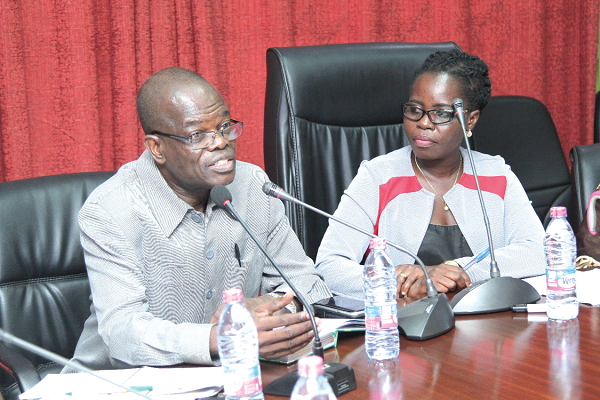
Agric experts explore ways to fight Fall Army Worms
Experts in agriculture are looking for solutions that will help weed out Fall Armyworms (FAW) in the country.
The Deputy Director of the Plant Protection and Regulatory Services Directorate of the Ministry of Food and Agriculture (MoFA), Dr Ebenezer Aboagye, who stated this in Accra on Monday, said the use of chemicals could not effectively deal with the threat the pests posed to crops.
Advertisement
Speaking at a national forum on sustainable ways of tackling the challenges facing the Planting for Food and Jobs (PFJ) programme in Accra on Monday, he said researchers had started exploring the possibility of getting natural enemies in the country to deal with the FAW challenge.
“Natural enemies are those other pests or insects that feed on the worms. What we are trying to do now is find out if those natural enemies can be found in the country.
“If we are able to get these enemies, we will rear them and multiply them, so that they eat up the FAW. We have started sculpting, so by the end of this planting season we will establish whether we can get the natural enemies in the country. If not, we will have to import them and increase their population, so that they can be unleashed into the fields to eat up the worms and their eggs,” Dr Aboagye said.
FAW attack
Some 35,000 farms have been attacked by the FAW since last year, affecting about 23,765 hectares of maize farms and other crops.
The government has since released about GH¢15 million for the purchase of chemicals and the sensitisation of farmers as part of measures to help control the worms.
Despite the intervention, there are indications that there will be an increase in the number of worms this planting season, a situation that raises much concern, particularly so as the worms pose the greatest threat to the government’s PFJ programme.
It was because of this that the national forum that was held to discuss the issue brought together stakeholders such as the Peasant Farmers Association of Ghana (PFAG) and researchers and civil society organisations (CSOs) in agriculture.
Among other issues discussed at the forum were access to quality seeds and fertiliser, arrangements for the purchase of inputs, modes of repayment and the implementation plan for the PFJ programme.
Supply of inputs
On the supply of inputs, a technical advisor at the MoFA, Mr Emmanuel Asante Krobea, said 10 local companies had been contracted to supply organic fertiliser to farmers, alongside the supply of inorganic fertiliser that began in the last planting season under the PFJ.
The move, he explained, was to ensure easy availability and accessibility of fertiliser to all farmers who would enrol on to the policy.
“We plan to expand the PFJ to reach 500,000 farmers this year. When this happens, it means that we need 1,500 metric tonnes of seeds to satisfy them. We want to be able to produce all the seeds locally by the beginning of 2019, so we are building the capacity of local seed producers to be able to supply the seeds,” he said.
The Executive Director of the PFAG, Dr Victoria Adongo, for her part, asked the government to take bold steps to address the problem of smuggling of farm inputs into neighbouring countries.



